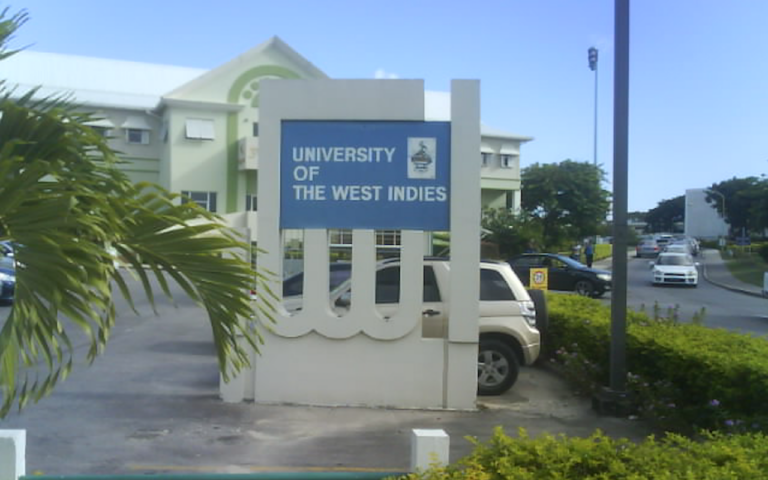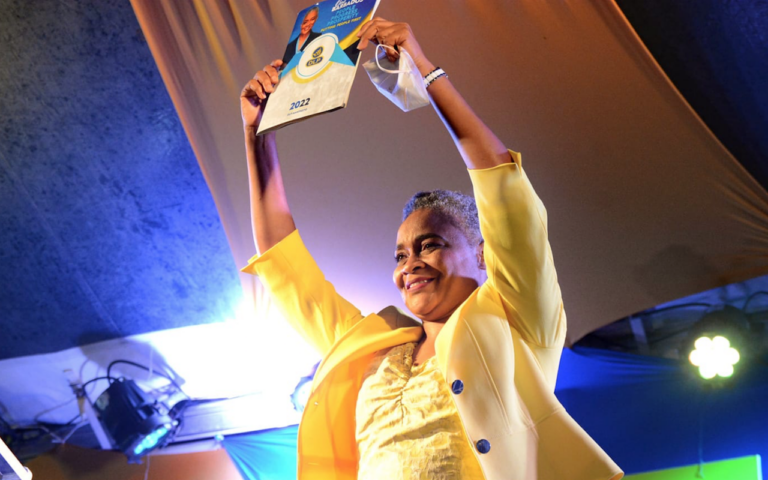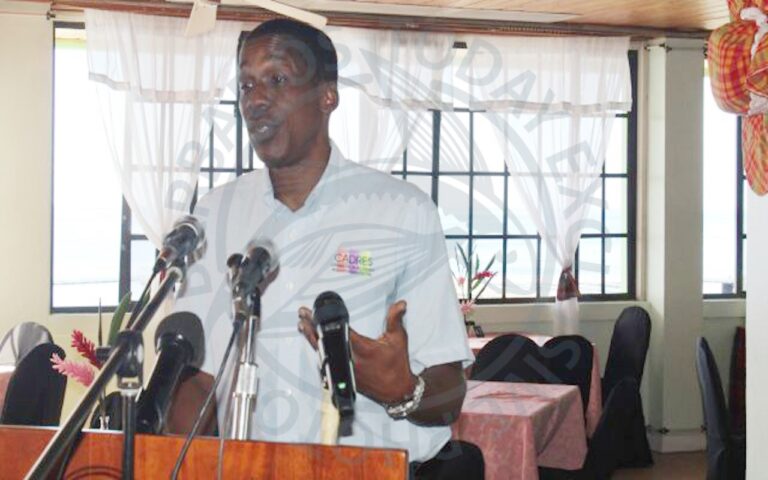Barbadians are being warned that the proposals outlined in the Democratic Labour Party’s (DLP) 2022 election manifesto will cost the country a minimum of $800 million and plunge the island into serious trouble if that party is given the reins of power.
Prime Minister Mia Mottley and her junior Minister of Finance Ryan Straughn joined forces on Friday, during a press conference at the Lawns in St George, to advise the country that the “goodies” being promised by the DLP are not feasible, particularly after efforts were made by the incumbent government during the past three-and-a-half years to stabilise the economy that lost some $600 million due to the COVID-19 fallout.
Mottley said the promises contained in the DLP manifesto were not only inappropriate, but elements of the proposals are “way beyond the capacity of the government of Barbados and the people of Barbados to be able to afford”.
She cautioned that if Barbadians gave the DLP the opportunity to implement their manifesto pledges in the present economic circumstances, it would place the country in a very precarious position.
Mottley then invited Straughn to provide a more in-depth examination of the proposals, following a costing conducted by her finance team on Thursday.
A proposal to reduce the Garbage and Sewage Contribution Levy was the first promise the Minister in the Ministry of Finance cautioned Barbadians about.
He questioned the DLP’s pledge to reduce the charge bearing in mind that a long-term solution is still needed to deal with sewage, even though the government had been able to remove it from off the streets.
Defending the government’s decision to retain the level of the tax, Straughn argued that it was necessary for everyone to share the financial burden in the measure that was specifically dedicated to ensuring that garbage collection could continue for the benefit of all and the trucks could be maintained.
“And what is being proposed, effectively would mean that is $41 million less to provide those services on an annual basis. So the question to the Democratic Labour Party is, where will this $41 million come from in order to provide these critical services to Barbadians?” Straughn asked.
“In respect of the reduction of the excise tax in terms of fuel at the pump, this is anticipated to cost $31 million. And, therefore, given where the economy is at the moment, again, where will this money from to help provide the range of services that government continues to provide even in the middle of a pandemic, to ordinary Barbadians?”
He added that it was “absolutely” critical for Barbadians to appreciate that when they go to the polls next Wednesday, they have to understand how these initiatives are being financed.
Straughn contended that while the government had to make critical reforms, “it is really in your interest for the short, medium and long-term that we can maintain these services and that they cannot be trifled with as a political tool in order to try to gain favour for votes”.
Stating that at the end of the day the numbers have to add up, he reminded the country that the government was still paying for the $60 million in arrears for fuel used by the Sanitation Service Authority and the Transport Board, left unsettled by the former DLP administration.
“With respect to the abolition of the foreign exchange fee [proposed by the DLP], clearly we have been in a programme in order to get ourselves out of what we inherited. As an economist, when it was introduced I was against it. But the reality of our condition is that the foreign exchange fee brings in $79 million a year,” the economist disclosed.
Straughn said it was his government’s intention to remove the fee but with the ongoing economic effects of COVID-19, that decision would have to be placed on hold.
“Removing it at this time when the tourism sector has not come back fully, I think is irresponsible. And while I said to Barbadians that as an economist I abhorred the fact that the last government had to introduce the foreign exchange fee, it is delivering for us at the moment a level revenue, that having lost $600 million in the previous fiscal year we must ask ourselves, where will these monies come from?
“But I can give the country the assurance that as soon as we are able to do that, we would be able to remove this particular tax in order to be able to alleviate that. Again, $79 million would have to be found to help make up for the gap that we already have,” he said.
The minister also argued that the DLP’s plans to remove the asset tax means the country would have to find an additional $48 million to replace that loss in revenue.
“All these are things that were introduced by the last government and, therefore, let us appreciate that you cannot simply say you are going to remove something unless you have the capacity to replace it. And we have been focused on getting growth. COVID has been a disruptor and we are absolutely confident that once we can do so, then these things can be phased out in a responsible way to allow the quality of services to continue,” he said.
Straughn then turned his attention to the DLP manifesto promise to “make pensioners whole”.
“To put it very clear, you are suggesting that we must now find $350 million from somewhere, having already said you are going to reduce by $41 million the Garbage and Sewage contribution, $31 million in excise, $71 million by the foreign exchange fee, $48 million by the asset tax…that you now are going to try to make whole the pensioners and the debt restructuring.
“It is quite emotive. I understand the attempt is to try to pull…to tug at the heartstrings of Barbadians. But I say to Barbadians that when we look at these numbers, it is simply not feasible. And, therefore, I say to all Barbadians, let us remain focused on what is achievable,” Straughn urged.
Another key DLP pledge that has come under scrutiny is the proposal to distribute solar panels to individuals.
“To suggest that you are going to distribute panels to persons from government would cost $219 million to do. But having spent the last three-and-a-half years working to bring a measure not only of respectability but fiscal prudence to the government of Barbados, I say to Barbadians that what you see in this Democratic Labour Party manifesto is not feasible; these numbers simply do not add up,” Straughn declared.
Picking up from where he left off, Prime Minister Mottley said some proposed measures are not available to cost out, such as the Universal Basic Income which the DLP proposes it would phase in.
That measure, according to the party’s manifesto, is a regular modest income or cash payment or direct deposit for individuals on welfare. (EJ)
The post BLP says DLP manifesto plans not feasible appeared first on Barbados Today.
























